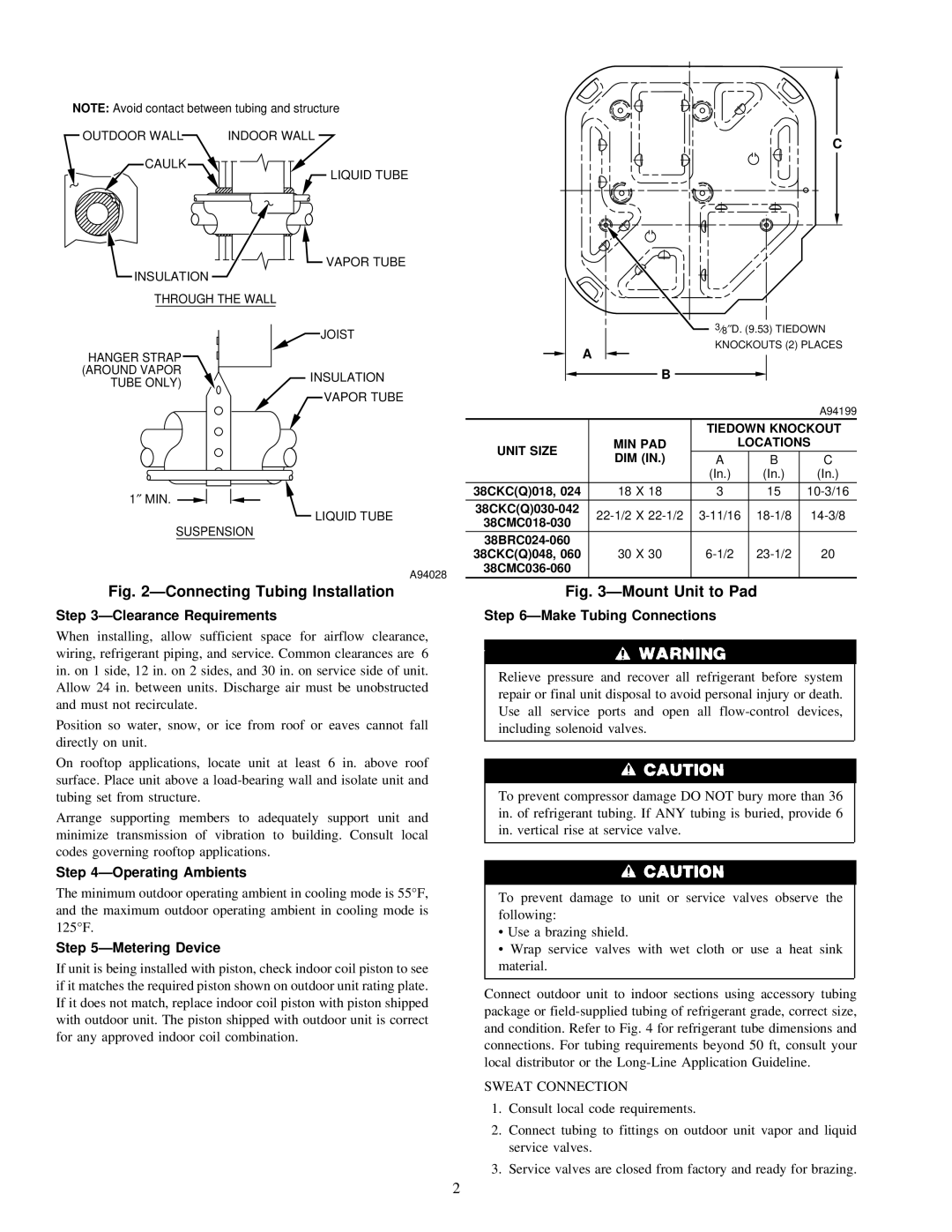38CKC(Q) specifications
The Carrier 38CKC(Q) is a highly efficient ductless air conditioning system designed to provide superior comfort while minimizing energy consumption. This innovative model is especially popular for both residential and commercial applications. With its sleek design and advanced features, the 38CKC(Q) stands out in the competitive landscape of HVAC technologies.One of the main features of the Carrier 38CKC(Q) is its inverter-driven compressor. This technology allows the system to adjust its cooling output according to the home’s demands, resulting in enhanced energy efficiency. The inverter system operates quietly and reduces wear and tear on components, leading to longer lifespan and lower maintenance costs.
The 38CKC(Q) also boasts high Seasonal Energy Efficiency Ratio (SEER) ratings, reflecting its ability to deliver cooling with significantly reduced energy consumption. This not only makes it environmentally friendly but also reduces utility bills, appealing to homeowners and business owners focused on sustainability.
Another notable characteristic is the system's multi-zone capability, allowing it to efficiently cool multiple rooms or areas. This is particularly advantageous for larger spaces where consistent and customizable comfort levels are desired. Each room can be controlled individually, ensuring that occupants can set preferred temperatures without affecting the entire system.
The installation of the Carrier 38CKC(Q) is relatively straightforward, often requiring minimal modification to existing structures. Its compact design allows for flexible placement options, making it suitable for various layouts and architectural styles.
Moreover, the unit is equipped with advanced filtration technology, enhancing indoor air quality by capturing dust, allergens, and pollutants. This feature is essential for homeowners concerned with health and wellness, providing a cleaner and fresher indoor environment.
Additionally, the Carrier 38CKC(Q) includes smart technology integration, allowing users to control the system remotely via mobile applications. This feature enhances convenience and offers the ability to monitor energy usage, aligning with modern smart home trends.
In summary, the Carrier 38CKC(Q) is a versatile and efficient ductless air conditioning solution, featuring inverter-driven technology, high SEER ratings, multi-zone capabilities, and smart integration. Its design and functionality make it an ideal choice for anyone seeking reliable and effective cooling solutions.

